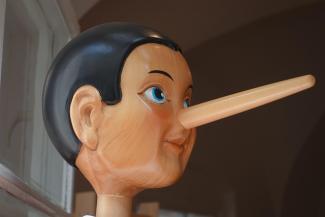Bringing a Claim for Libel
If someone has made untrue and damaging allegations about you, starting a claim for libel can seem daunting. However, with the right legal advice, you can claim compensation for the harm which has been caused to your reputation.
For many people, their personal reputation, or the reputation of their business, is of the utmost importance. When something happens to damage that reputation, it can have devastating consequences. Defamation of character (of a person or of a business) can come in two forms, libel or slander. Defamation of character online, mainly on social media platforms, is particularly widespread and is a growing problem for individuals and businesses alike.
What Is Libel?
Libel is a statement made in writing or in another permanent form, which is untrue, and which causes serious harm to your reputation.
Libel usually refers to written untrue statements, which can be made in many different ways, including:
- online, including publications on X (formerly Twitter), posts on Facebook, messages in Whats App groups, online business reviews on platforms such as Trip Advisor, blogs or articles;
- in videos streamed online such as on YouTube or Tik Tok;
- in traditional print, such as in national or local newspapers or magazines;
- in campaigning leaflets, in minutes of meetings which are made available to the public, or other such documents;
- on national or local radio; or
- on television or in films.
What Counts as Publication of Libel?
You have to be able to prove that the libel about you has to be published to third parties, if you want to bring a claim. Publication of libel means that the untrue words or statement must be read by at least one other person.
The wider the publication, the higher the level of compensation is likely to be, as the more harm will have been caused to your reputation. This means that if you are libelled on the front page of a newspaper, you are likely to receive higher damages than if you are libelled in a Whats App group with a few members.
The law will not infer that a statement has been read by anyone just because it appears on the internet. It is up to the claimant to prove that other people have read and believed the untrue statements about them. This means that if the untrue statement has been made about you online, you should screenshot the statement itself, as well as any reactions or responses to it (such as re-posts, comments, likes or shares) so that you can prove that the libel has been read by third parties.
When is a Statement Classed as Libel?
A statement is libellous and untrue if it:
- lowers you in the minds of right-thinking members of society;
- disparages you in your trade, business or profession;
- exposes you to hatred, ridicule or contempt; or
- causes you to be shunned or avoided.
If you do not meet one of these criteria as a result of what has been published about you, you would not be able to bring a claim for libel.
What is Serious Harm in a Libel Claim?
If you want to bring a claim for libel, you have to be able to prove that "serious harm" has been caused to your reputation. This usually means that you will need evidence that someone has treated you differently, examples being that you have lost friends, or been expelled from clubs or societies that you were a member of. In other words, you have to be able to demonstrate that you have suffered "real life consequences" as a result of the untrue statements which have been published.
Libel against an individual and libel against a business require different evidence of the harm caused to reputation, if the claim is to be actionable:
- If you bring a claim for libel as an individual, you have to prove that serious harm has been, or is likely to be, caused to your reputation by the untrue statement.
- Claims for libel on behalf of a business are often more difficult to bring, as there is a requirement for the claimant to prove that the business has suffered serious financial loss as a result of the libel, as well as serious harm to the reputation of a business.
Some types of libel are actionable without you having to prove that actual serious harm has been caused to your reputation. For example, if you were wrongly accused of committing a serious crime, such as being violent, or being a paedophile, the allegation could be considered to be so serious, that the court would be likely to infer that serious harm had been caused to your reputation.
How do I Start a Claim for Libel?
If you think that you have suffered serious harm to your reputation because of libel, it is important to take action as quickly as possible, as you have only one year from the date of the publication of the untrue statement to start court proceedings. This is called the limitation period. Exceptions will only be made to this strict limitation period in rare circumstances and only with the permission of the Court.
If you have a claim for libel, it is important that you start your claim off properly, by following the steps set out in the Pre Action Protocol for Media & Communications Claims. The Protocol requires claimants to send a letter of claim to a defendant, setting out everything the defendant needs to know about the claim. The defendant then has a short period of time in which to respond.
In some cases, the dispute will be settled under the Protocol procedure, but in other cases Court proceedings need to be issued.
There are strict rules about where libel claims can be started, and only the High Court has jurisdiction to deal with libel claims. If you start a libel claim in the County Court, it could be struck out if you cannot get it transferred to the High Court.
What are the Defences to a Libel Claim?
Absolute Privilege: There are certain classes of libel which cannot be actionable, under the Defamation Act 2013. Typically this covers statements which are made to the police, or statements which are made in the course of court proceedings, whether in writing or in oral evidence before the court. It also covers statements which are made in Parliament. This is known as the defence of "absolute privilege".
Truth: A defendant can say in response to a claim, that the statement they have made about you is true. If they can prove that what they have said about you is true, then the claim will fail. If a defendant pleads truth as a defence, which ultimately fails, could you be awarded a higher sum in damages by the court.
Honest Opinion: A defendant can defend a claim for defamation by saying that the allegedly untrue statement was their honestly held opinion. A defendant can only rely on this defence, if the statement they made also set out the basis of their opinion, and it was a reasonable opinion for them to hold.
Qualified Privilege: Another technical defence, is the defence of "qualified privilege". If the untrue statement was made in an official context, such as in a letter from a GP to a specialist, the minutes of a Parish Council meeting, in the course of an investigation by an employer, or by a social worker, the qualified privilege defence would mean the claim was likely to fail. It is possible to defeat a defence of qualified privilege, if you can prove to the Court that the person who made the untrue statement about you, did so maliciously. This means that genuine mistakes will not be actionable, but if someone made a statement about you in an official context which they knew was not true, you could still bring a claim. This defence is very rarely heard in court because it is so difficult to prove that statements were made maliciously.
Public Interest: If a defendant can prove that they made their statements because they were doing so in the public interest (for example a piece of investigative journalism), the public interest defence could protect them, even if there are some errors in what has been said.
There are other types of libel which may not be actionable because of the circumstances in which the statements were made, but this will depend on the individual facts of each case. You will need advice to confirm whether or not you can bring a claim for libel and whether there are any defences which could defeat that claim.
What are the Remedies for Libel?
If you bring a successful claim for defamation, there are various remedies that the court can award. The main remedies are:
- Damages, or financial compensation. The trial judge will decide how much the defendant should pay to the claimant to remedy the harm the defendant has caused to the claimant's reputation. If the defendant has tried and failed to rely on the defence of truth, this can mean higher damages are awarded to a claimant.
- The court can also impose an injunction on the defendant, to prevent them from making the untrue statements again in future. If an injunction like this is breached, the defendant could be sent to prison.
- If a claim settles, a defendant may agree to make a statement in open court, which would confirm publicly that what they said was untrue, and apologise for the harm and upset they have caused.
- If a claimant wins a libel claim against a defendant, the defendant would almost always be ordered by the court to pay the claimant's legal costs.
How Much do Libel Cases Cost?
If your claim for defamation is successful, it is also likely that the court would order the defendant to pay your costs, or at least a high proportion of the legal costs you have incurred. The costs involved in bringing a claim for defamation can be high, particularly if you get all the way to trial. This is a good reason to seek legal advice at as early a stage as possible, to try to resolve the dispute quickly.
We understand that it can be difficult for clients to access justice, now that legal aid has all but disappeared. For this reason, we are happy to offer clients with strong cases funding options arrangements, which can include no win no fee (conditional fee) arrangements in appropriate cases. We will need to assess each case on its merits and advise you whether your case is suitable for a no win no fee arrangement.
In some cases, you may be able to raise money to help you bring your claim for libel using a crowdfunding platform such as Crowd Justice. We have dealt with many cases using these types of platform and we can help you set up your online appeal to help pay for your legal costs.
Am I too Late for a Libel Claim?
You only have one year to bring a claim for libel.
If your matter is not suitable for a libel claim, for example if you are beyond the one year limitation period, you may still be able to stop internet users being able to find unwanted or untrue material about you by blocking unwanted material from the internet.
This is something that we are able to help you with, via our right to be forgotten service.
What to do if you are a Victim of Libel
We can help you if you want to sue someone for defamation of character. Libel is a highly specialist area of law, and requires the advice of an expert from the outset. What can constitute an actionable libel is constantly changing, particularly because of the widespread use of social media and developments in the law as to what constitutes serious harm.
At Samuels Solicitors, we have a wealth of experience in bringing and defending libel claims for our clients. We act for clients from all over England & Wales. If you have suffered because someone has published untrue statements about you, we can help.
Contact us today for a no obligation, free initial discussion about how we can help, or complete and send the questionnaire below, to tell us about your case, so that a specialist can get back to you.
Libel Questionnaire
Latest Bringing a Claim for Libel News
-
The meaning of the word "nonce" has been argued over in libel claims in recent cases
-
The Guardian's defeat of Dr Who actor Noel Clarke leaves him with a multi million pound costs bill.
-
Finding a solicitor with a niche specialism in libel and slander cases
-
A libel claim against The Guardian fails, with Noel Clarke being labelled as an unreliable witness.
-
A Greek football club owner has sued for libel in relation to very serious allegations of criminal behaviour.
-
Yaxley-Lennon aka Tommy Robinson has been found in contempt of Court for ignoring orders made in a libel trial.









